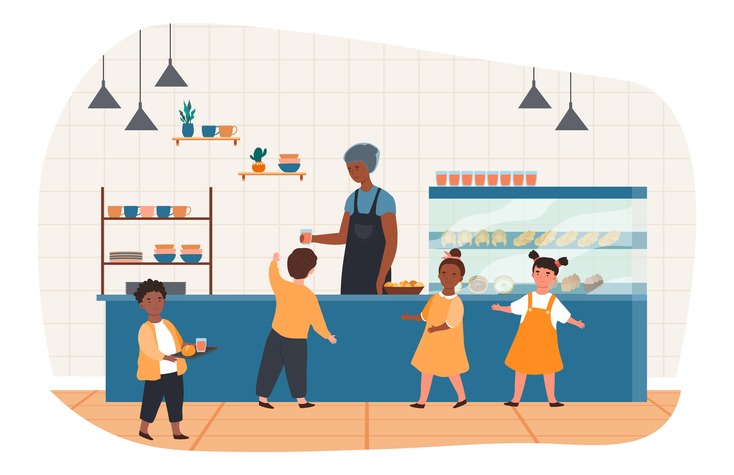
With school dinner costs on the increase, schools are having to choose whether to stay on budget or assist families struggling with the cost-of-living crisis
CREDIT: This is an edited version of an article that originally appeared on inews.
Parents could soon have to pay more for school lunches because heads are struggling to find cash from their own tightly squeezed budgets to shield prices from food inflation.
Head teachers in England told i that they have been using their school funds to keep the cost of school meals down to as little at £2.20. If they didn’t do this the real cost would be more than a third more.
They are worried that if school dinner costs are pushed up they will price out children who don’t qualify for free meals but come from families struggling to make ends meet, and so have subsidised the meals.
But now absorbing the rising costs has become “very challenging” because of schools’ precarious funding situation.
i understand that many school caterers believe that average meal prices will need to be around £2.70 when schools return in September, although other experts say the cost may be £3 or more in many cases.
Glynn Potts, headteacher at Newman RC College in Oldham, Greater Manchester, is one head who has so far kept meal prices low. Children who pay for lunch at his school get a main meal, a dessert and a drink for £2.20.
Last year, he projected losing £40,000 by doing this, but he says this loss will have increased with food inflation, which now stands at above 19 per cent.
He is reviewing whether he can afford to subsidise the meals by as much going forward.
“Governors are of the view that if meal prices go up, it pushes those families that are just about making it into a really perilous position,” he said.
Wayne Norrie, chief executive of the Greenwood Academy Trust, which covers 37 schools across England had set aside £1.4m last year to protect families against the cost of inflation.
This money was used to keep down the cost of both school meals and school uniform, with lunches currently costing £2.30 – a price that has not increased for three years.
He said protecting the prices was now “more tricky due to very challenging school budgets”.
“I’ve never known a time like this in education funding,” he said.
Stephen Morales, chief executive of the Institute for School Business Leadership, a professional body for school business staff, said that many schools were facing similar dilemmas.
He said: “This absolutely pulls on the heartstrings because from a financial sustainability point of view you can see why schools might pass costs on, but from a duty of care perspective they might want to take the hit.”
Other options available to schools include providing smaller portions or lesser quality food, but Mr Morales said that there were “huge downsides” to this.
“You can provide a sausage roll and warmed up beans for next to nothing. That’s very much going backwards given all the campaigning work that’s been done for fresh ingredients,” he said.
Jason Elsom, chief executive of parent charity Parentkind said that while the cost-of-living crisis was felt most by those on lower incomes, it was also affecting families “well into middle income groups”.
“These families earn enough to not benefit from free school meals but are feeling immense pressure from cost increases across the board.”
“Our recent polling suggested that the vast majority of parents would like to see universal free school meals, and we encourage the government to consider this,” he added.



Be the first to comment